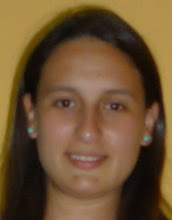After many years at College, I´ve undoubtedly learned many things, not only for our future career but also for our future life as well. I believe that one of the most important things is that we have been encouraged to work cooperatively. Although I must have complained a lot about having to meet with my classmates to do research, at the end I´ve always realized that it served a purpose. Each group assignment has made us work together, discuss, take decisions, make concessions and agree on what to do. Once I have had subjects such as Pedagogy, Didactics and the Workshops I´ve fully realized that group work does work, even when forced to work with classmates who aren´t very close to me.
In Language classes we have also worked cooperatively as well. For instance, we have always practiced peer editing. I´ve particularly found such way of working really useful, haven´t you? When writing I sometimes make mistakes that go unnoticed for me but that my classmates usually see when reading my work. Editors raise awareness towards those mistakes and generally give an overall appraisal of the whole work.
When deciding to write about this topic here, I googled “peer editing” so as to gather more information about this issue and I could confirm all I thought about its usefulness. I´ve found that peer editing isn´t only essential for the person who writes but also for those who edit as well. It is a moment in which editors have the opportunity to criticize others´ work, to analyze it, to judge critically what others´ have written. At the same time, editors can learn from the way in which others write: they can learn vocabulary, expressions, organizational patterns and they can become more sensitive to connotation and style.
In our particular case, as future teachers, peer editing helps us to correct others´ writing tasks. We can practice how to correct, how to raise awareness towards mistakes and how to address the person we are correcting. We should be very tactful when correcting, since our intention should be far from hurting our classmates´ feelings. And in a couple of years we should be very careful not to hurt our students´ feelings either! Finally, by editing our classmates we can “play” to be teachers at least for a while and this is more encouraging and challenging if we think we are correcting those who are at our same level or even above us. ¨
Would you like to read something about peer editing? I´ve visited this site and I´ve found it quite interesting. It gives many guide on how to edit. Maybe you can make more contributions!
Saturday, 17 July 2010
Subscribe to:
Post Comments (Atom)

What you say is very true. Editing is not easy at all but it can be a very enriching process. For me the best thing is to be able to see things as other people see them. To edit you need to get into the writers head to understand his or her way of thinking and organizing speech. And even though this not always an easy task for our structured minds to accomplish, it is definitely worth the effort.
ReplyDelete